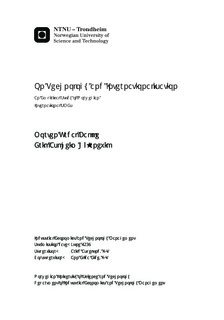| dc.description.abstract | This empirical study investigates the relationship between technology and the internationalisation process of small- and medium-sized enterprises. First, a theoretical overview of globalisation, internationalisation, and technology is given. Drawing on the literature from these fields, two hypotheses regarding the relationship between internationalisation, technology, and firm age are presented. Thereafter, a quantitative analysis of SMEs is performed and the results of this analysis is related to the theory and thoroughly discussed. Finally, some implications for researchers, managers, and policy-makers are discussed.The analysis of this paper reveals that there is no significant relationship between technology and the degree of internationalisation suggesting that technology is not a driver of degree of firm internationalisation. This could be due to the spread of technology throughout industries, giving all firms access to technologies that either mitigate challenges with internationalisation or removes competitive advantages that some firms had some decades ago due to unique technology. Further, it is discovered that firm age is significantly related to the speed of internationalisation, suggesting that the changing macro-environment of firms is a driver for internationalisation behaviour. The implications for researchers are that more focus should be directed to international SMEs in low-tech sectors. These firms have been mostly overlooked in international strategy research the last couple of decades but should be interesting to study as technology is not a driver for degree of internationalisation. The results also suggest that managers should focus on areas such as networks and firm attitudes to help their internationalisation process. For policy-makers the results indicate that other measures than technology development should be deployed to improve a country's export performance. | nb_NO |

